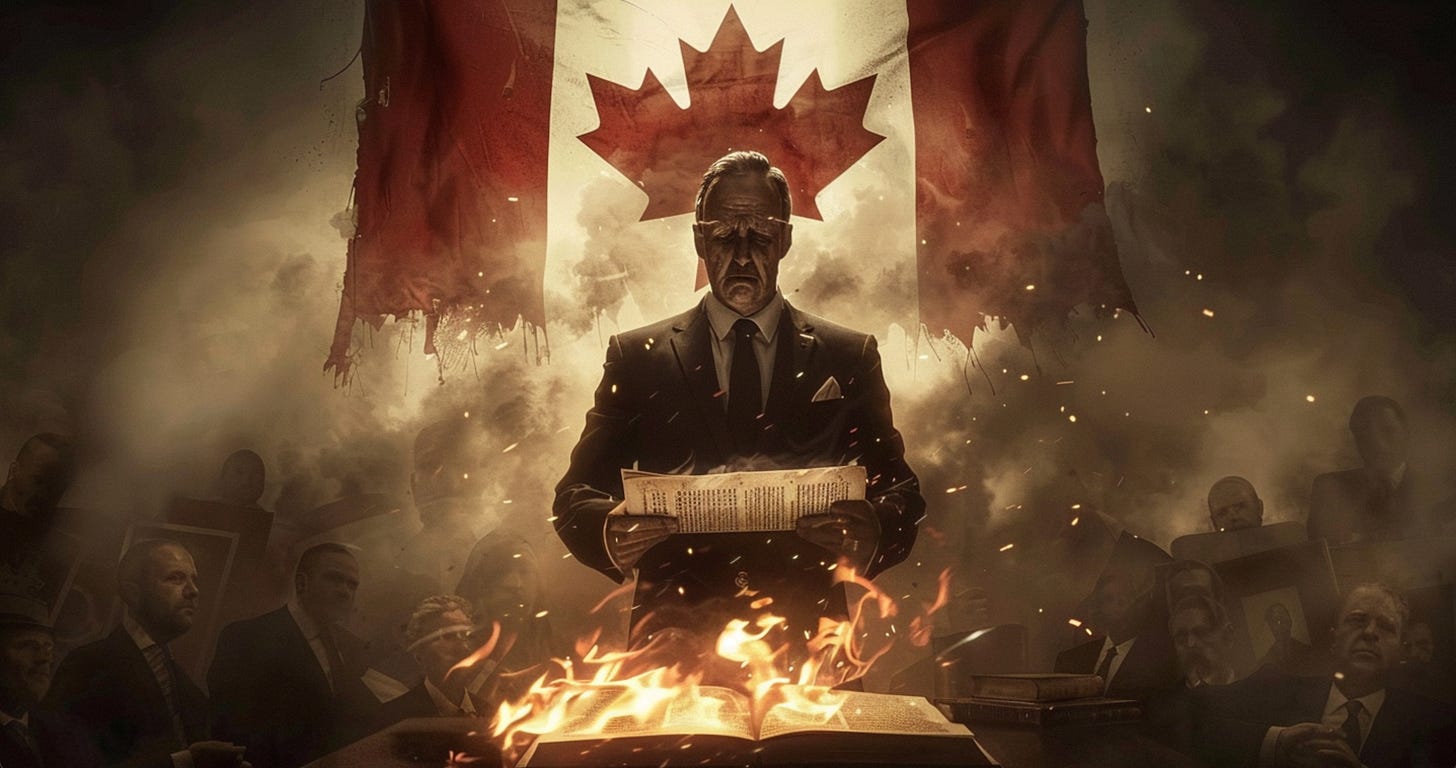A Terrifying Reality: Canadians Don’t Have Rights
Canada's Charter of Rights and Freedoms may be more accurately described as a charter of state-sanctioned privileges.
In the Constitution of Canada, there is a section titled “Canadian Charter of Rights and Freedoms.” However, it might be more accurately titled “Canadian Charter of Privileges.”
True rights cannot be legitimately taken away or infringed upon. Unfortunately, the first section of the Charter reads:
“1. The Canadian Charter of Rights and Freedoms guarantees the rights and freedoms set out in it subject only to such reasonable limits prescribed by law as can be demonstrably justified in a free and democratic society.”
This implies that our rights are not absolute. They can be restricted if the government demonstrates that the limitation is reasonable and justified in the context of upholding public order, safety, and the overall well-being of society.
The Problem
Historically, governments have conflated societal well-being with regime stability. This fundamental misunderstanding of rights and freedoms poses a significant issue. The essence of a free society lies in protecting individual rights from the tyranny of the majority or the state. The primary role of government should be to safeguard these natural rights—life, liberty, and property—rights that are inalienable and cannot be overridden by the state for the sake of societal well-being. The very concept of “societal well-being” is deeply flawed but we’ll circle back to that in a moment.
When the state starts to infringe upon these rights under the guise of protecting society, it betrays its fundamental purpose. The only justification for exerting power over any member of a civilized community, against their will, is if they have already infringed upon the rights of others. However, in Canada, the concept of “reasonable limits” allows for broad and subjective interpretations, which will change with each sitting regime.
A crucial lesson humanity has yet to learn is that centralized power attracts psychopaths who seek control over others. When such individuals gain key decision-making positions within the State, they often believe that what is best for society is their ability to control it.
Collectivist mindsets that place societal needs above individual rights are deeply flawed. Individual rights should serve as the means of subordinating society to moral law, not the other way around. When a government claims the authority to limit rights for the greater good, it inevitably sacrifices individual liberties on the altar of collectivist ideals.
Allowing governments too much power under the pretext of achieving social justice or societal well-being is dangerous. Such power inevitably corrupts, leading to the inefficiencies and injustices that centralized planning and control bring. The very idea of “reasonable limits” is a gigantic step on the path to extensive government overreach.
Consider the extreme end of what can happen when governments have unchecked power: a society where the state controls every aspect of life, justified by the need to maintain social order.
The notion of “reasonable limits” on rights is not just a legal technicality; it represents a fundamental threat to individual liberty.





